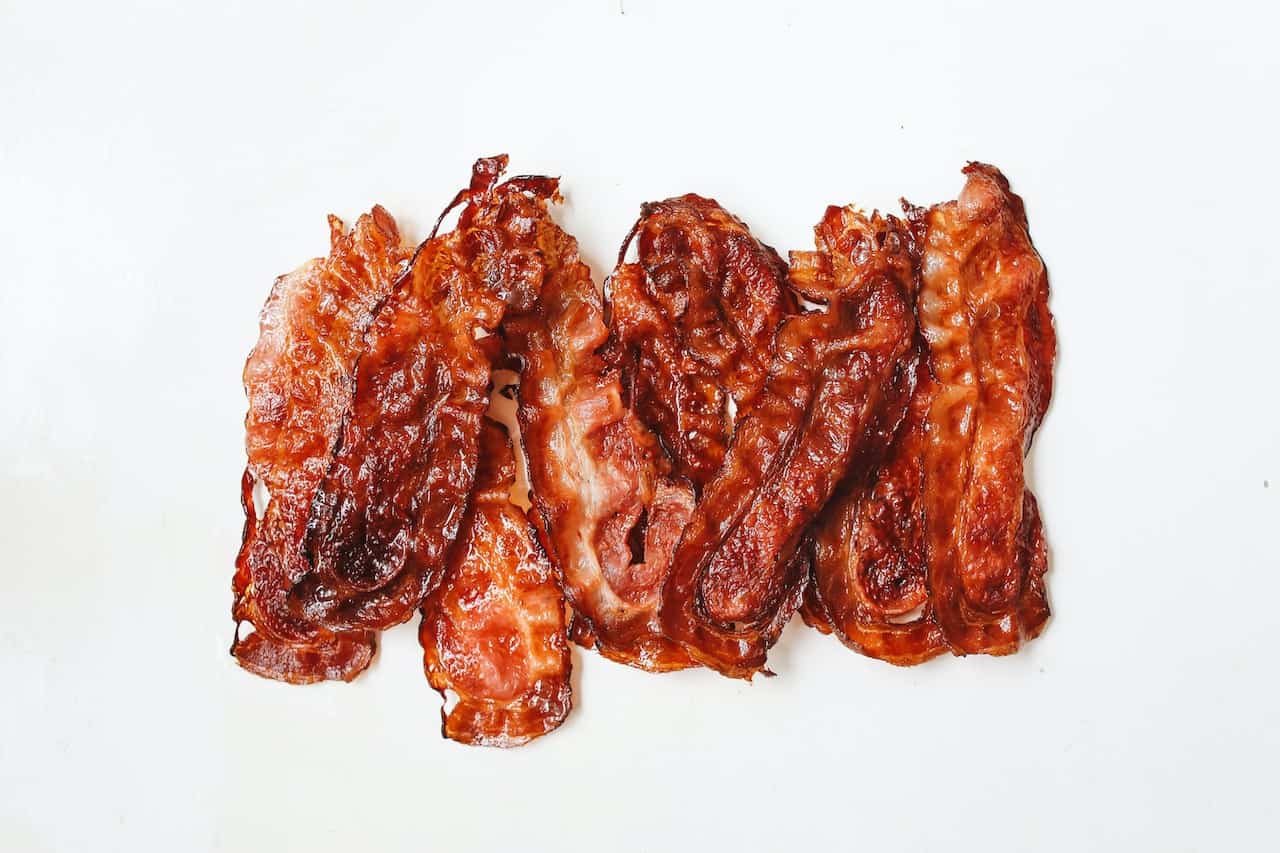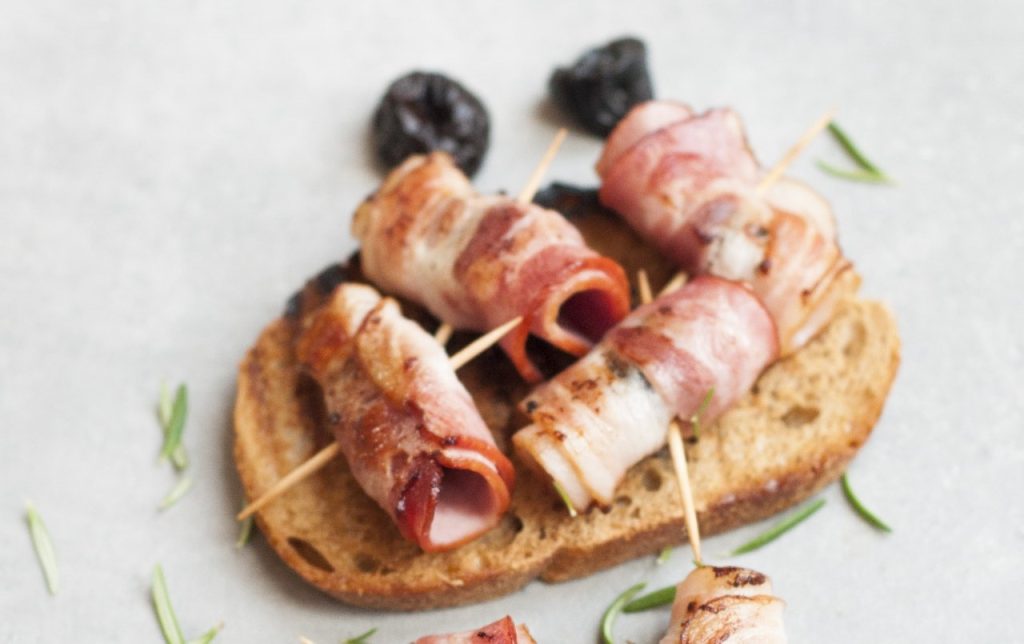Bacon is a staple food that has become a cultural icon in the United States and is enjoyed by millions of people every day. In fact, according to a survey by the National Pork Board, an estimated 80% of American households purchase it regularly and have a supply at home.
It has been a significant part of the American diet since the 1920s, and its popularity shows no signs of slowing down any time soon.
Bacon is best enjoyed when hot and freshly cooked. But if you only have some cold, leftover bacon in the fridge, that could still be eaten and enjoyed as well.
However, it’s important to note that there are safety risks associated with consuming cold bacon, especially if it isn’t stored properly.
Fortunately, with proper storage, handling, and reheating, you can safely eat cold bacon without any worries. Whether you’re a bacon lover or just looking for tips on how to handle and store your leftover meats at home, this guide will have everything you need.
Risks and Safety Concerns When Eating Cold Bacon

Bacon is often cooked for breakfast to start the day with a hot and delicious dish. But if you don’t have time to prepare and you’re eating leftover bacon from the fridge in the morning, then you have to keep some safety concerns in mind.
-
Bacterial growth
One of the primary risks of eating cold bacon is that it could be full of bacteria.
Bacteria can grow due to several factors, but in general, when cooked bacon is left out at room temperature and exposed to air, eating it has an increased risk of foodborne illness.
When bacon, or any other high-protein food, enters the 40°F and 140°F temperature range or “danger zone,” bacteria will grow rapidly, and the dish will become a health risk.
This typically happens after protein is left outside the fridge for more than two hours.
-
Digestive issues
Since bacon has a lot of moisture and fat, it can solidify after being left inside the fridge or even at room temperature for too long.
Since it is harder to break down in the digestive tract, consuming it can cause discomfort, bloating, and other digestive problems, especially for people with sensitive stomachs.
However, it is important to note that bacon, in general, can cause constipation if not eaten in moderation and when consumed together with other fatty foods.
-
Choking hazard
Since cold bacon is chewy and dense, it could present a potential risk of choking to children and people who have difficulty swallowing food.
As such, it is important to cut it into small bite-sized pieces whenever it gets served to young children or elderly individuals. You should also remind them to chew thoroughly and eat slowly to further reduce the chances of any accidents happening.
-
Fat Oxidation
Another thing that you have to look out for when consuming cold bacon is the oxidation of its fats.
Bacon can start to oxidize and develop a rancid flavor when it is exposed to air for an extended period of time.
Although it only happens on rare occasions, consuming oxidized bacon can lead to inflammation in your body, so it’s still beneficial to keep this in mind.
It is essential to take precautions when consuming cold bacon to minimize these risks and keep yourself healthy. But if something happens unexpectedly despite your measures, do not hesitate to contact a healthcare professional.
Proper Storage of Bacon
If you want to reduce the risk of foodborne illness and preserve the quality of your bacon, it’s essential that you store it properly. Below are some tips on how you can do that safely:
Putting your bacon in the fridge
Like any other protein, the best way to store bacon is by putting it in your refrigerator at 40°F before any germs or dust contaminate it.
For the best results, place the bacon in the coldest part of your fridge, which is usually at the back or on the bottom shelf.
This method will keep the cooked bacon fresh for about 5 to 7 days.
Putting your bacon in the freezer
If you plan on keeping your bacon for a longer period of time, then you can put it in the freezer. Just make sure to tightly wrap it in plastic or aluminum foil before placing it in a freezer-safe container.
Afterward, you have to put a label on the package with the date so you can keep track of how long it has been frozen. Doing this will keep your frozen bacon edible for up to six months.
However, freezing your cooked bacon will significantly reduce its quality, so this is not recommended if you want to get the most out of your money.
You would be better off keeping it in the fridge for 5 to 7 days instead, so you can reheat it properly.
Reheating Bacon
Although cold bacon is generally safe to eat, it is still recommended to reheat it before consumption for optimal taste and texture.
The easiest and fastest way to do that is to use the microwave on high for 15 to 20 seconds or until it’s hot enough. Alternatively, you can also heat it on the stovetop or in the oven.
You do not have to follow any complicated instructions to do this; simply reheat it using the same method as if you were cooking it for the first time, and that should do the trick.
According to the USDA, bacon should be reheated to an internal temperature of 165°F to kill any harmful bacteria that may have grown during storage. So make sure that your bacon is hot before serving it.
Final Thoughts
While it is possible to eat cold bacon, there are several risks and safety concerns that come with it. As such, it is important to store leftover bacon properly and consume it within a reasonable amount of time to avoid any negative effects.
However, the best method to ensure that your cold bacon is safe for consumption is still to reheat it. By following the tips mentioned in this article, you can enjoy the delicious taste of bacon without any concerns for your health or safety.

